20180925-faroq-mw25-collection-001
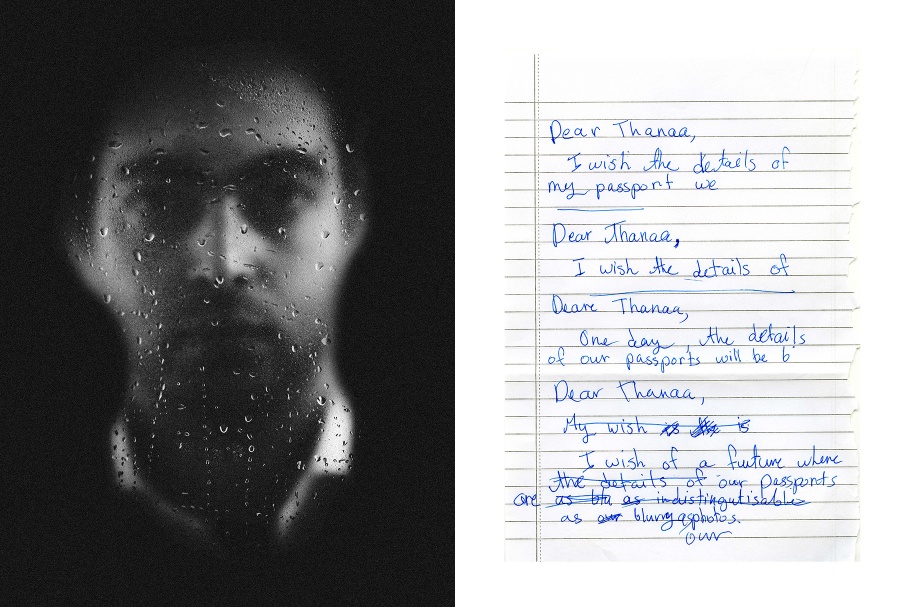
Fady is from Palestine and currently an emigrant to the United Kingdom. His portrait is accompanied by a handwritten letter addressed to the artist.
London, United Kingdom, August 2017.
20180925-faroq-mw25-collection-002
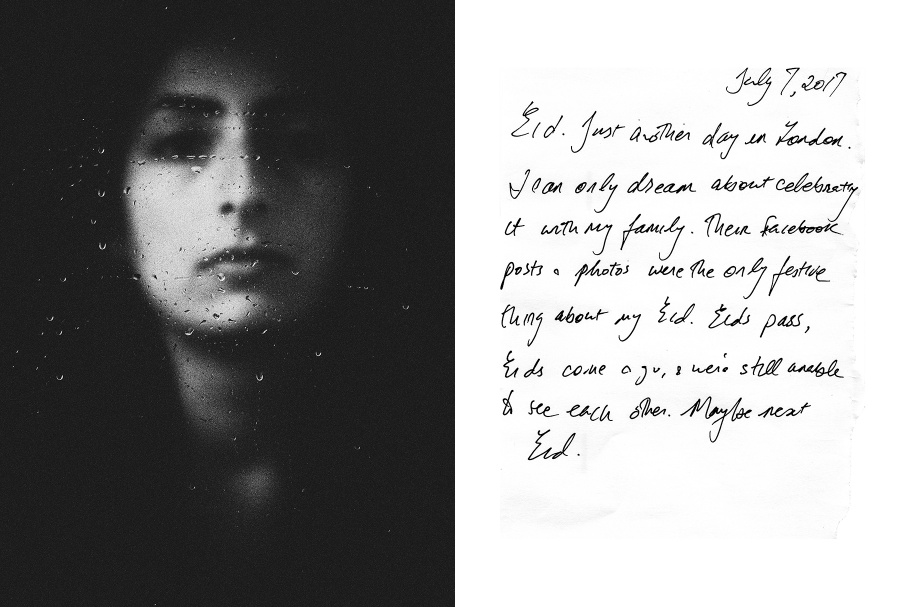
Yasmeen, a writer and blogger from Gaza, Palestine, currently lives in the United Kingdom. Her portrait is accompanied by a handwritten letter addressed to the artist.
London, United Kingdom, June 2017.
20180925-faroq-mw25-collection-003
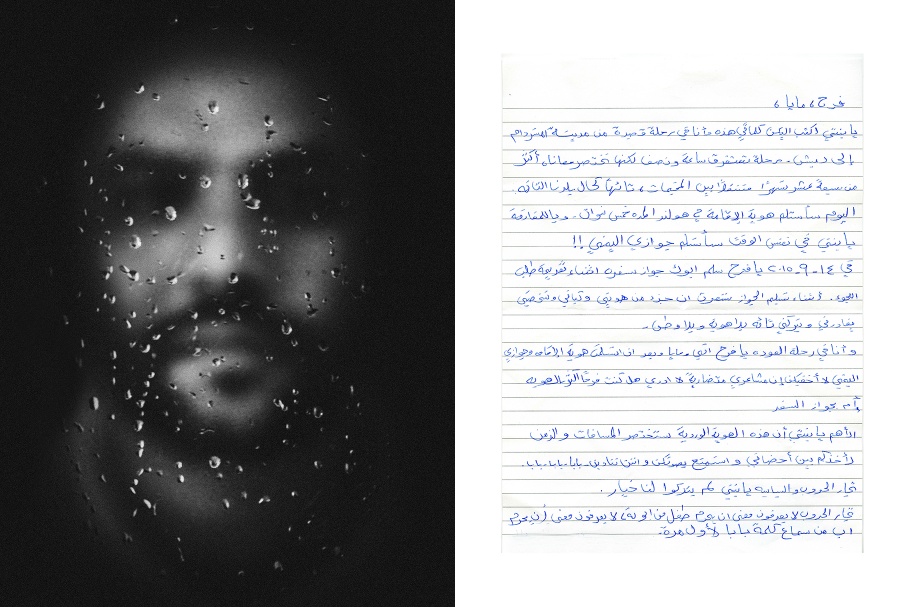
Fares, a Yemeni aid worker in public health, is currently a refugee in the Netherlands. His portrait is accompanied by a handwritten letter addressed to his daughters in Yemen.
Amsterdam, the Netherlands, August 2017.
Translation of handwritten letter:
Farah, Maya,
My daughters, I write to you this letter while on a short trip from the city of Amsterdam to ‘s-Hertogenbosch. A trip that will take an hour and a half but will summarize the suffering of more than seventeen months, traveling between camps and being lost, like our lost country.
Today, I will receive my five-year residence card in the Netherlands. Ironically, I will receive my Yemeni passport at the same time!
Farah, on September 14, 2015, your father surrendered his passport while applying for asylum. As I handed over the passport, I felt that part of my being, identity, and personality have left me; leaving me lost without an identity or homeland.
On the way back, dear daughters, Farah and Maya, upon receiving my residence card and Yemeni passport, I will not lie to you I had conflicting feelings. I did not know whether I was happier with the card or the passport.
The most important thing, dear daughters, is that this pink card will shorten the distance and time, so that I can hold you in my arms and enjoy hearing your voices calling me: Baba, Baba, Baba.
Warmongers and political opportunists left us no choice.
Warmongers do not know what it means to deprive a child of her parents, and to deprive a father from hearing the word “Baba” for the first time.
—Fares, February 25, 2017
20180925-faroq-mw25-collection-004
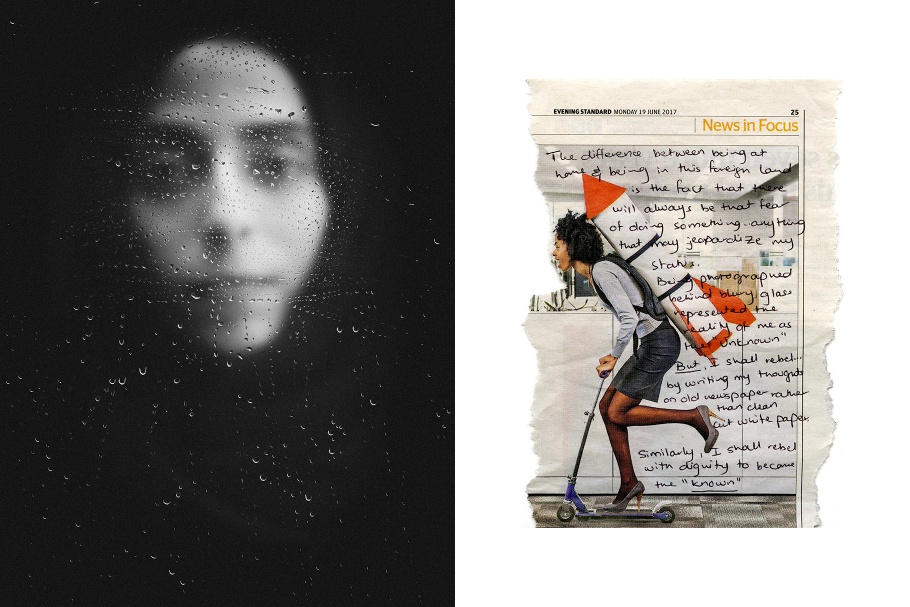
Fatima, a Yemeni YouTube personality and food blogger, is currently a refugee in the United Kingdom. Her portrait is accompanied by a handwritten letter addressed to the artist.
London, United Kingdom, July 2017.
20180925-faroq-mw25-collection-005
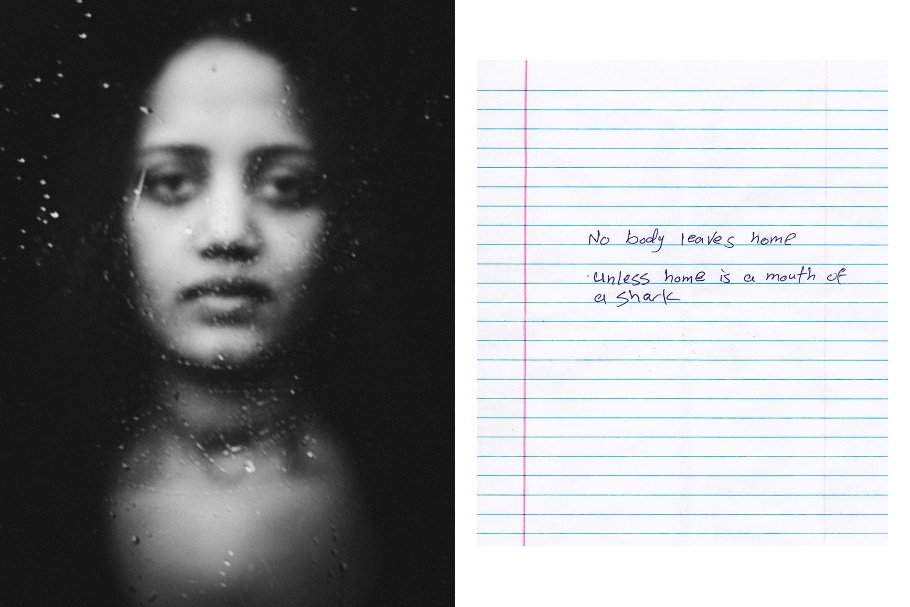
Hellen, who is 19 years old and from Eritrea, is currently a refugee in the Netherlands. She plans to pursue college this year and major in international studies. Hellen chose to express her feelings by including an excerpt from a poem called “Home” by British-Somali poet Warsan Shire.
Gilze Rijen, the Netherlands, November 2017.
20180925-faroq-mw25-collection-006
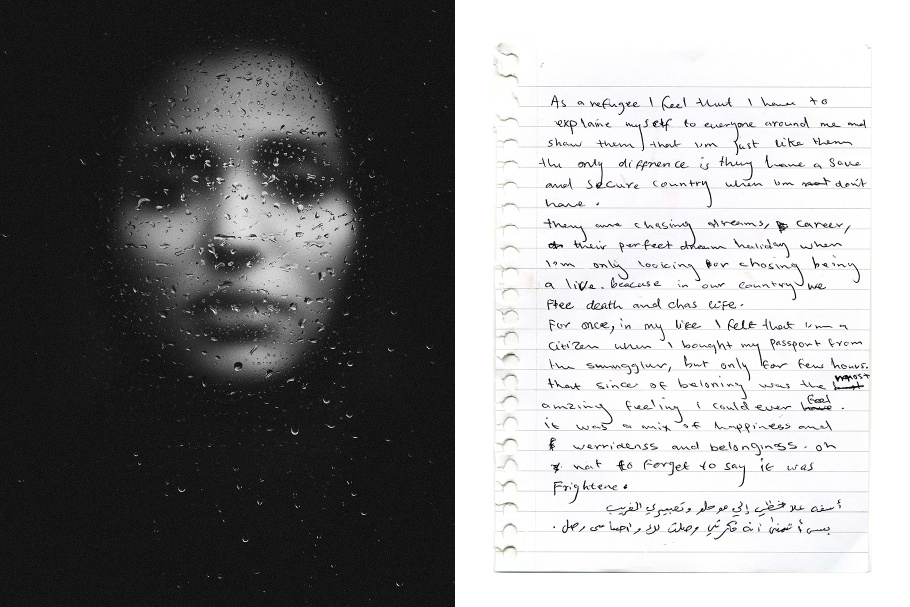
Lula, a poet of the Somali and Yemeni diaspora, currently lives in the United Kingdom. Her portrait is accompanied by a handwritten letter addressed to the artist.
London, United Kingdom, July 2017.
20180925-faroq-mw25-collection-007
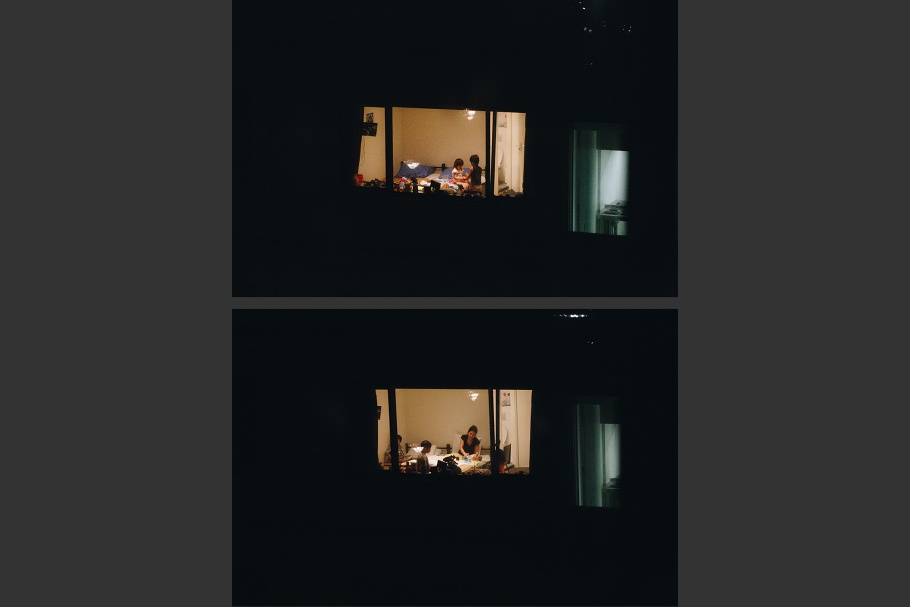
Views from the window of my room in a refugee camp.
Utrecht, the Netherlands, 2018.
“I was shocked today when I woke up and found out that it was already Friday. The truth is, as a refugee, you are hardly aware of the time or the days. It doesn’t matter if it is Saturday or Monday, or if it’s 7:00 a.m. or 9:00 p.m. Days look similar and so does the time. What matters is that each night and around 10:00 p.m., we know that our names will be listed for either a transfer, another hearing, or for any other purpose. People wait restlessly anxious about what comes next.” —Journal entry, 2017
20180925-faroq-mw25-collection-008
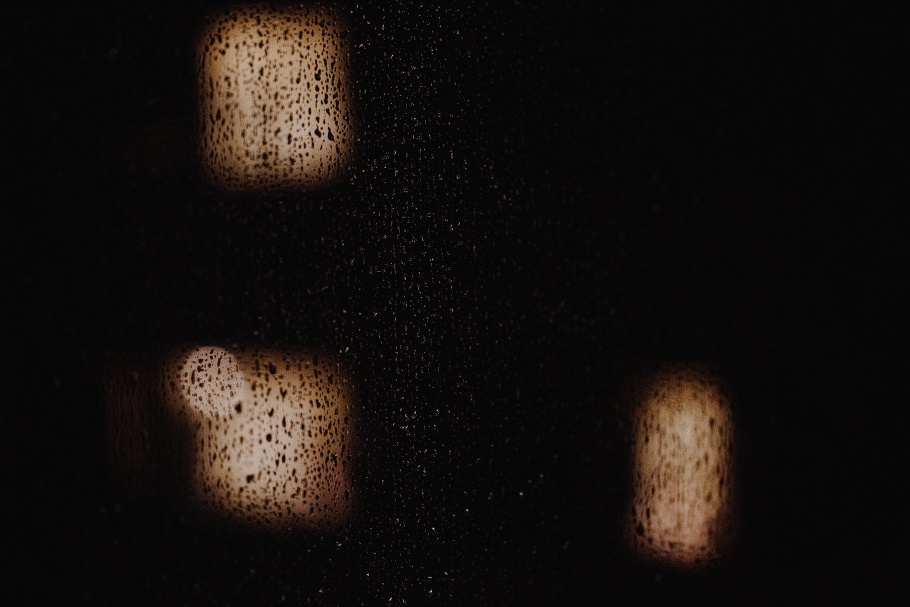
Views from the window of my room in a refugee camp.
Utrecht, the Netherlands, 2018.
“I was shocked today when I woke up and found out that it was already Friday. The truth is, as a refugee, you are hardly aware of the time or the days. It doesn’t matter if it is Saturday or Monday, or if it’s 7:00 a.m. or 9:00 p.m. Days look similar and so does the time. What matters is that each night and around 10:00 p.m., we know that our names will be listed for either a transfer, another hearing, or for any other purpose. People wait restlessly anxious about what comes next.” —Journal entry, 2017
20180925-faroq-mw25-collection-009
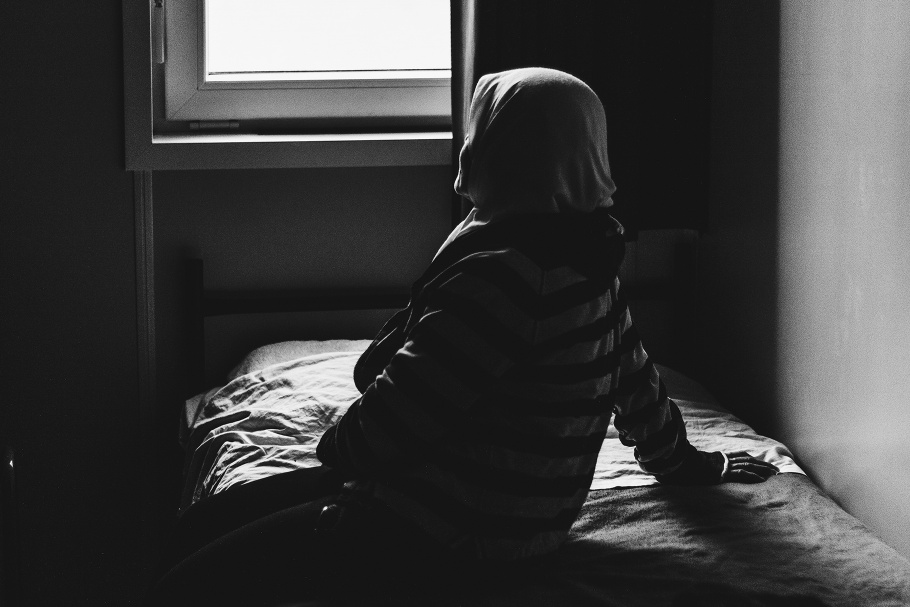
Om Nizar’s visa was issued through a smuggler. She wasn’t aware that it was a fake one. Or maybe she knew. Did it matter? She had to escape anyway. She got caught attempting a border crossing and was imprisoned for a few days.
She was later released to join an asylum. In her room, she finds solace. She talks to God and weeps over her sorrow. A room that she seldom leaves. A temporary room in a temporary building, in a temporary world.
Gilze Rijen, the Netherlands, November 2017.
20180925-faroq-mw25-collection-010
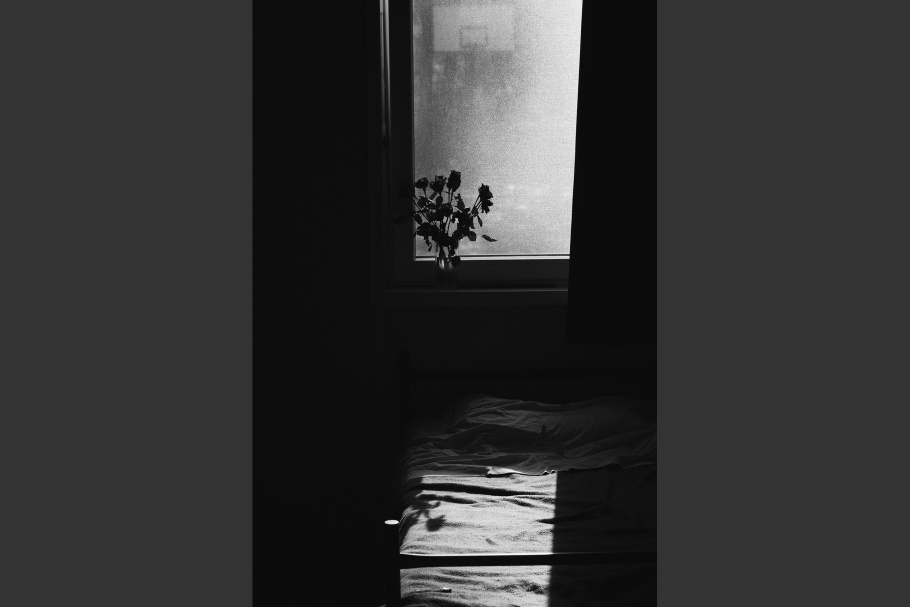
Om Nizar’s visa was issued through a smuggler. She wasn’t aware that it was a fake one. Or maybe she knew. Did it matter? She had to escape anyway. She got caught attempting a border crossing and was imprisoned for a few days.
She was later released to join an asylum. In her room, she finds solace. She talks to God and weeps over her sorrow. A room that she seldom leaves. A temporary room in a temporary building, in a temporary world.
Gilze Rijen, the Netherlands, November 2017.
20180925-faroq-mw25-collection-011
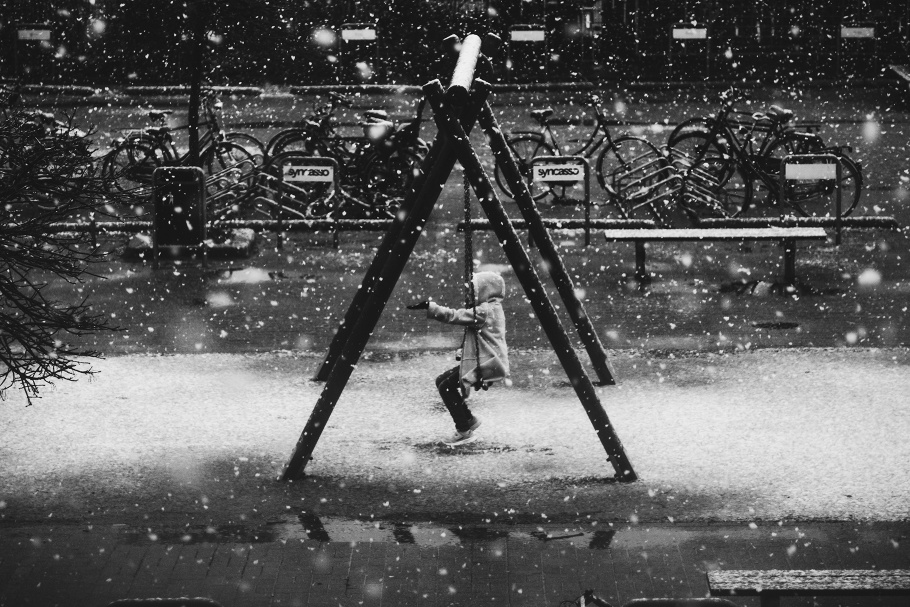
A young girl living in a refugee camp witnesses snowfall for the first time in her life.
Utrecht, the Netherlands, December 2017.
20180925-faroq-mw25-collection-012
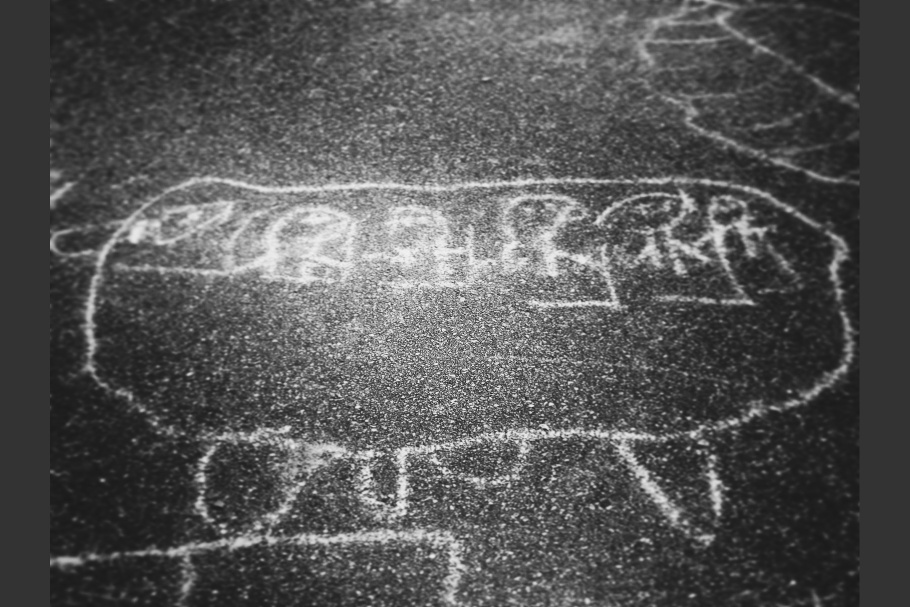
As other children play in the yards filled with autumn leaves, eight-year-old Basma documented her journey to Europe. It was her way to express fear, pain, and loss. But it was all washed away with the rain a few minutes later. If only painful memories can be washed away with rain too, I thought.
Overloon, the Netherlands, 2017.
20180925-faroq-mw25-collection-013
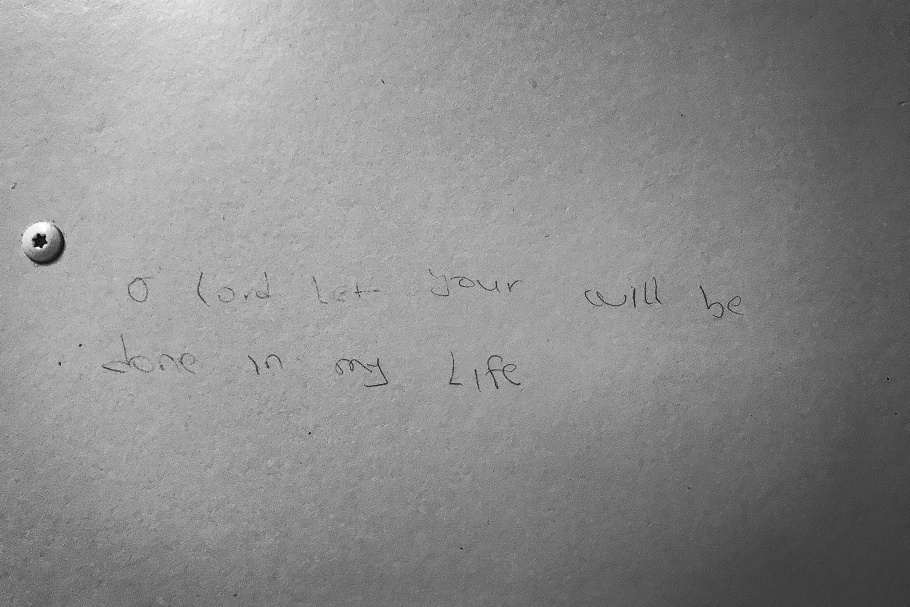
Writings on a wall in one of the rooms of a refugee camp.
Overloon, the Netherlands, 2017.
20180925-faroq-mw25-collection-014
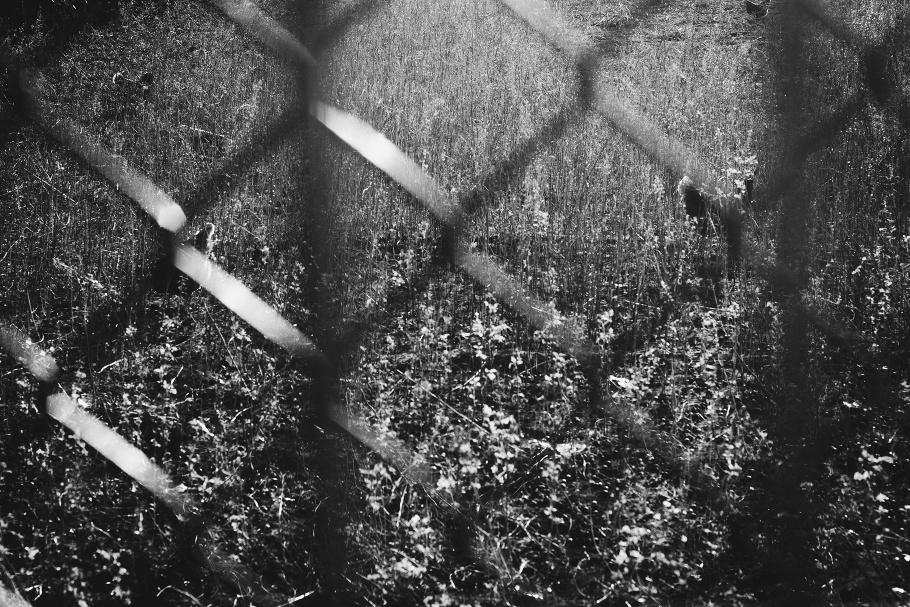
“They tell us the camps aren’t prisons, but why do they feel so, why are their fences all around. If I want to run I will run. They can’t stop me! This is the dumbest thing ever! Truth is, I can’t run either, I don’t have the will. I’m undocumented, unknown. I’m a bundle of nothingness at the moment. No legal status, nothing. I don’t know where to run to begin with. I’m not a free woman, but as helpless as I sound, I don’t feel weak either. I am just angry. So angry that I can’t even breathe!” —Journal entry, 2017
20180925-faroq-mw25-collection-015
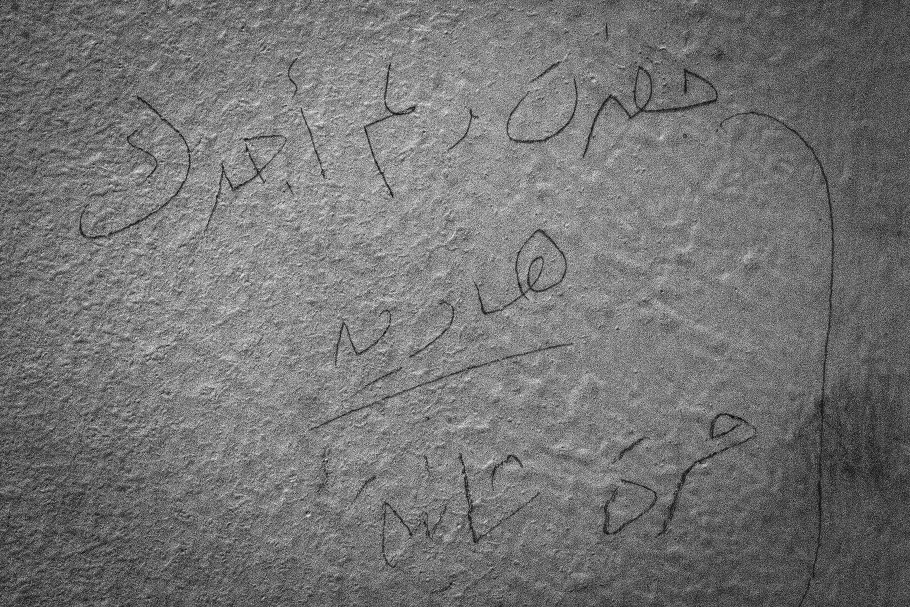
Writing on a wall of a refugee camp. “This is my second time coming and I can't find you.”
Utrecht, the Netherlands, 2018.
20180925-faroq-mw25-collection-016
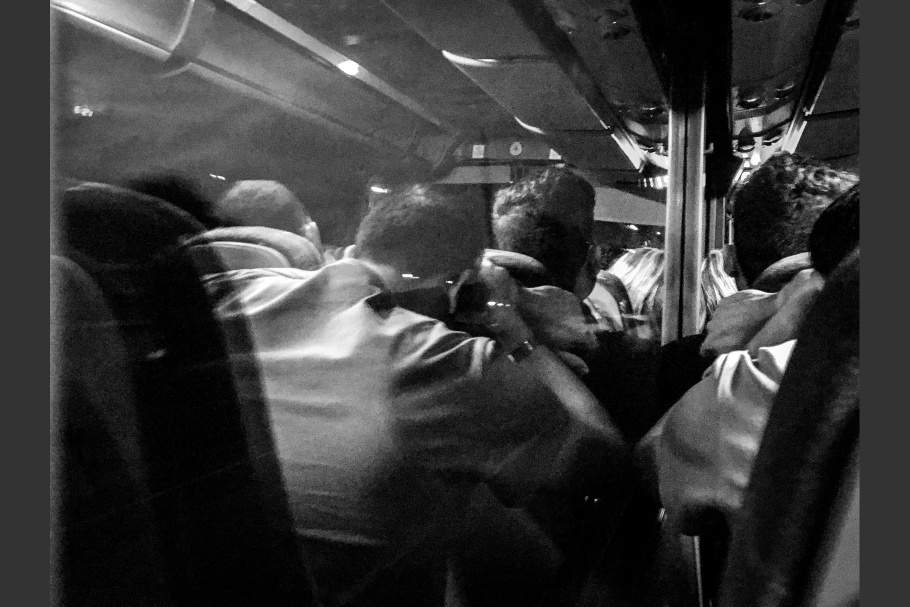
Asylum seekers in a bus on their way to refugee camps.
Budel, the Netherlands, 2017.
20180925-faroq-mw25-collection-017
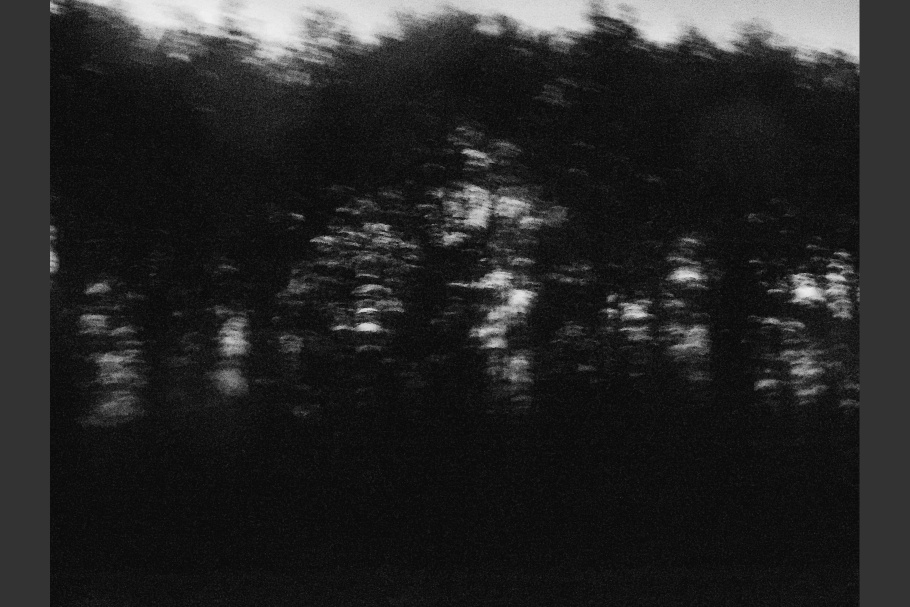
On the road to another camp transfer.
“Tomorrow we should get up so early, around 5:00 a.m., to be transferred to another camp called Budel, in the north. There will be a huge bus to collect us all. My mind goes to the young girl from Eritrea who came here alone. She was deported back. I couldn’t be sure what happened. She was in denial, she didn’t know either. The roads are too long, this silence in the bus kills me.” —Journal entry, 2017
20180925-faroq-mw25-collection-018
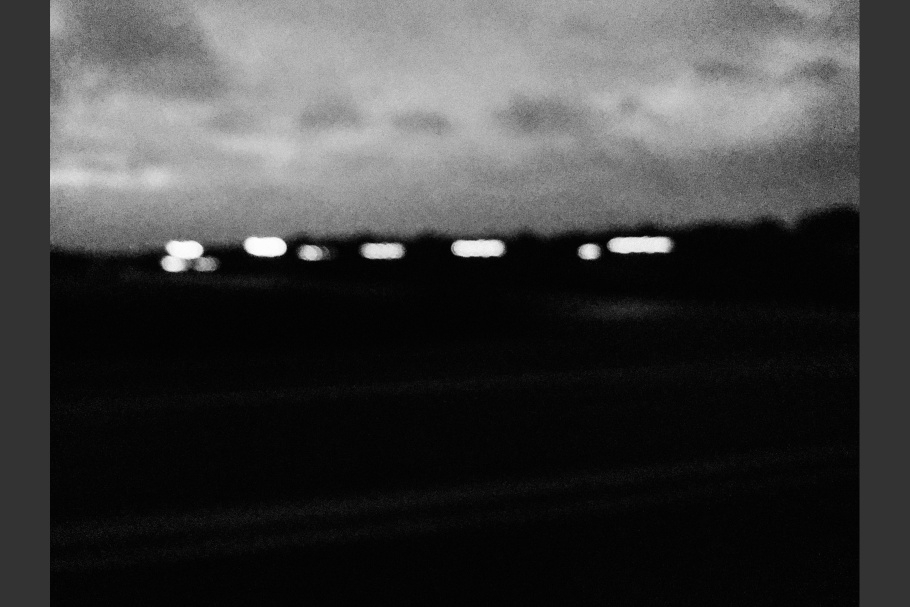
On the road to another camp transfer.
“Tomorrow we should get up so early, around 5:00 a.m., to be transferred to another camp called Budel, in the north. There will be a huge bus to collect us all. My mind goes to the young girl from Eritrea who came here alone. She was deported back. I couldn’t be sure what happened. She was in denial, she didn’t know either. The roads are too long, this silence in the bus kills me.” —Journal entry, 2017
20180925-faroq-mw25-collection-019
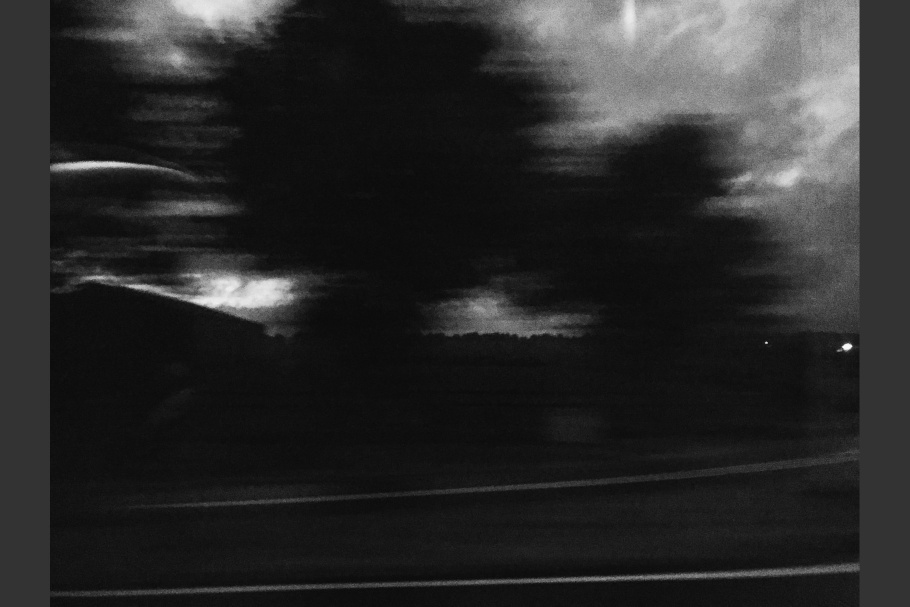
On the road to another camp transfer.
“Tomorrow we should get up so early, around 5:00 a.m., to be transferred to another camp called Budel, in the north. There will be a huge bus to collect us all. My mind goes to the young girl from Eritrea who came here alone. She was deported back. I couldn’t be sure what happened. She was in denial, she didn’t know either. The roads are too long, this silence in the bus kills me.” —Journal entry, 2017
20180925-faroq-mw25-collection-020
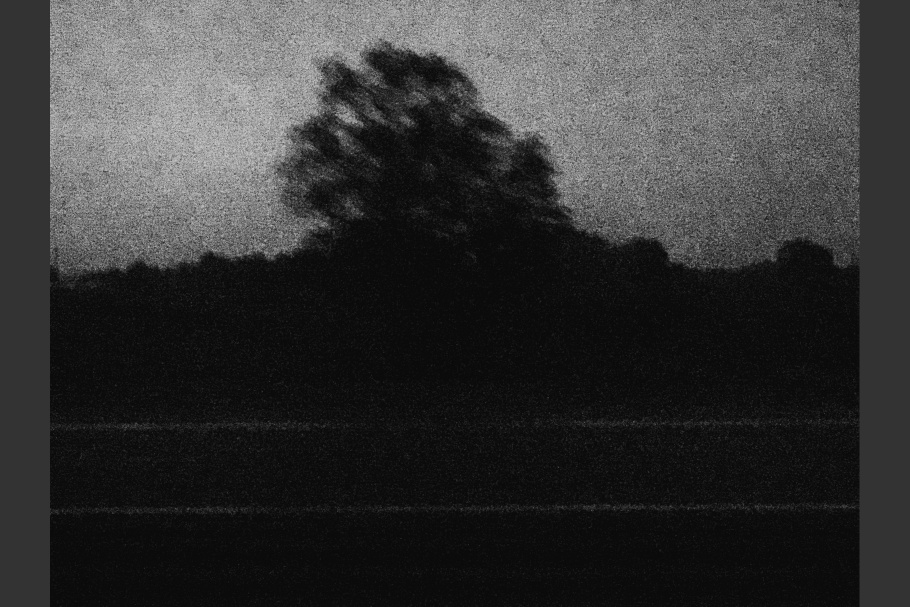
On the road to another camp transfer.
“Tomorrow we should get up so early, around 5:00 a.m., to be transferred to another camp called Budel, in the north. There will be a huge bus to collect us all. My mind goes to the young girl from Eritrea who came here alone. She was deported back. I couldn’t be sure what happened. She was in denial, she didn’t know either. The roads are too long, this silence in the bus kills me.” —Journal entry, 2017
20180925-faroq-mw25-collection-021
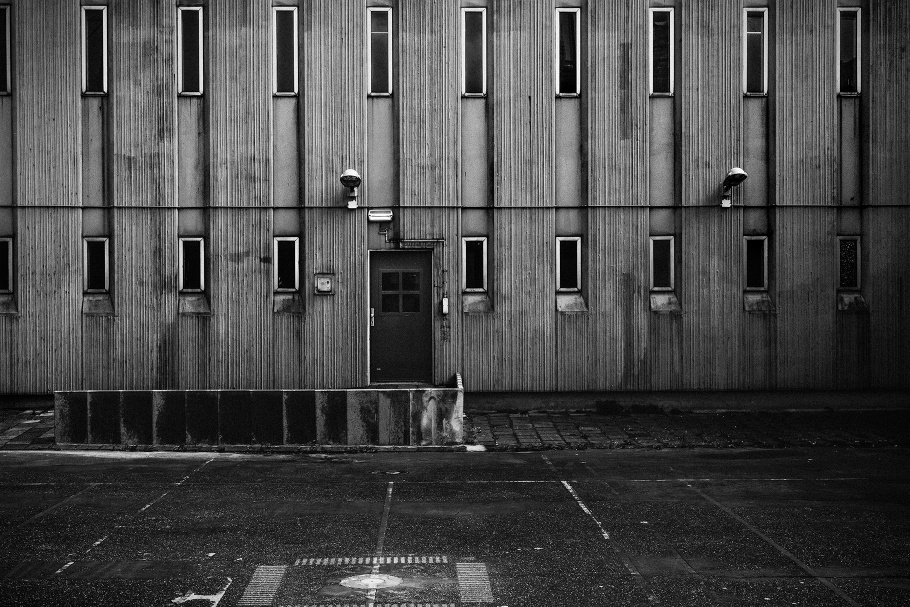
The camp used to be a prison before, but they had to turn it into a refugee center around 2015 because of the massive flow of asylum seekers to the Netherlands.
Amsterdam, the Netherlands, 2017.
20180925-faroq-mw25-collection-022
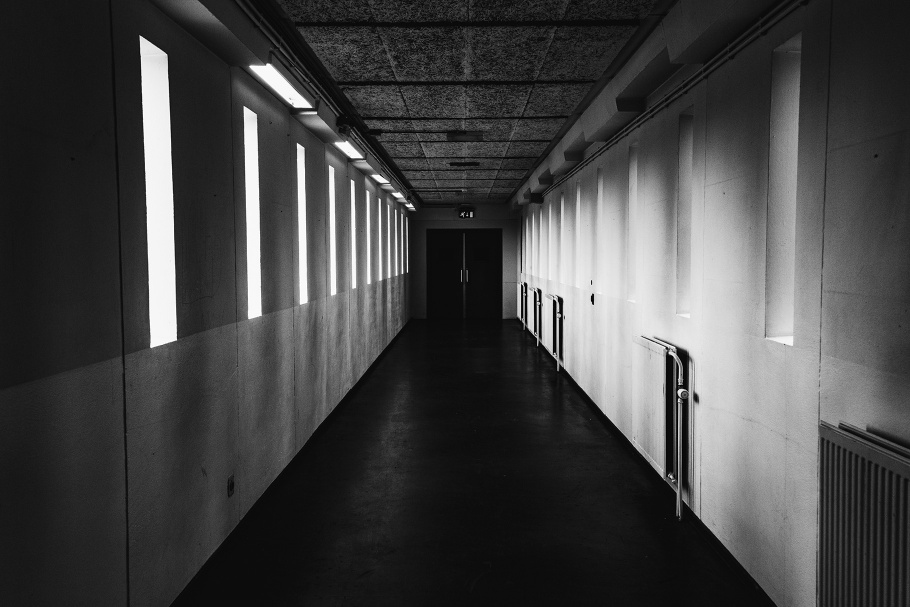
The camp used to be a prison before, but they had to turn it into a refugee center around 2015 because of the massive flow of asylum seekers to the Netherlands.
Amsterdam, the Netherlands, 2017.
20180925-faroq-mw25-collection-023
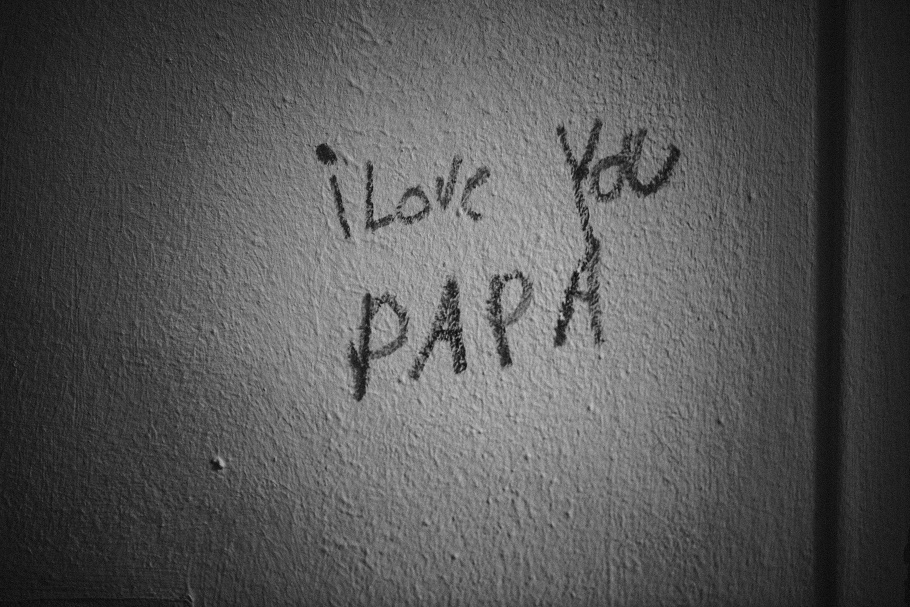
As I was walking in the refugee camp, I was intrigued to visit the family section on the second floor of the camp. There were many writings on the wall and I felt particularly attached to this one: “I love you, Papa.” A little girl came near me as I was photographing it. I asked her if she was the one who wrote it and she replied, yes. Then I asked her where her papa was. Her response: "I don’t know. We left and he stayed.”
Amsterdam, the Netherlands, 2017.
20180925-faroq-mw25-collection-024
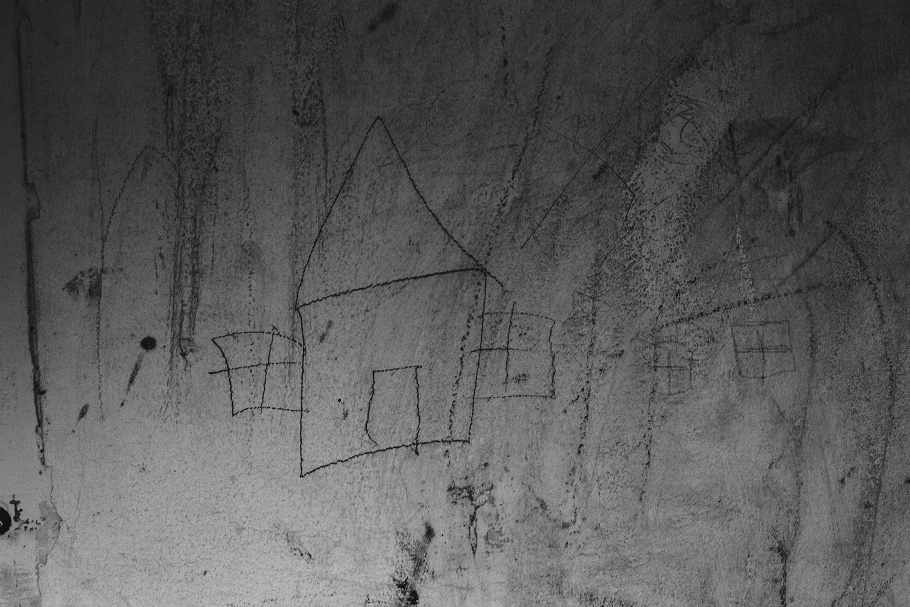
Drawings in a refugee camp.
Utrecht, the Netherlands, 2018.
20180925-faroq-mw25-collection-025
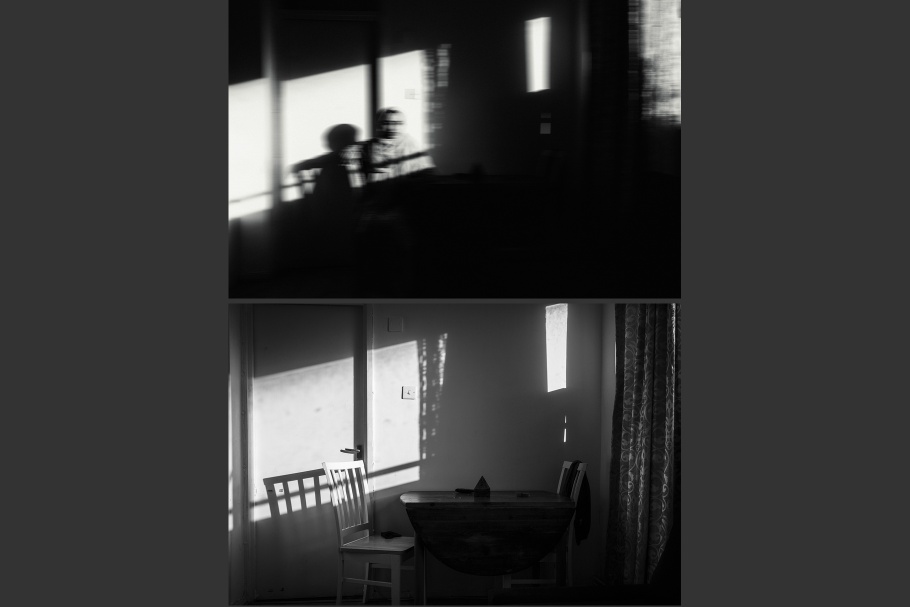
Lula, a poet who experienced different transitions coming from a Somali and Yemeni background, writes about freedom, hope, and longing in one of her poems that she shared with me called “My Journey.”
Listen about my journey to the unknown, I started it with an empty backpack
Though my backpack was empty, it was full of hopes and dreams … it wasn’t as imagined
Black umbrella, brown coat, and red scarf.
My journey in a few words was waiting …
London, United Kingdom, 2017.
20180925-faroq-mw25-collection-026
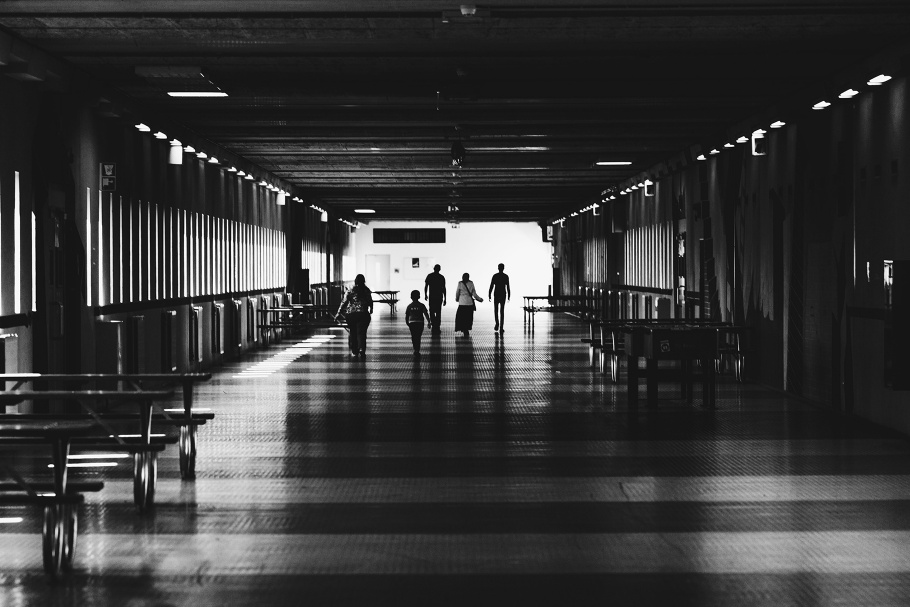
I took this photo on my first day in this refugee camp and I loved the calmness of it. The camp is like a beehive. It never stops: People arrive, people leave, and many stay here forever.
Amsterdam, the Netherlands, 2017.
Thana Faroq (b. 1989, Yemen; lives in the Netherlands) is a documentary photographer and storyteller. In 2016, Faroq was awarded a Break the Silence scholarship to pursue her MA in documentary photography and photojournalism at the University of Westminster in London. Her work consists of personal reportage addressing themes of memory, boundaries, and violence. She focuses on collaborative storytelling projects to tell personal anecdotes of displacement and migration.
Previously, Faroq worked with various international NGOs in Yemen on stories about displaced women and children. Her work has been featured by several media outlets, including Aljazeera, BBC, CNN, Huffington Post, and World Press Photo’s Witness.
Thana Faroq
We live in a world divided by borders and walls where something as ephemeral as a piece of paper, a document, or a passport can acquire the potency of a curse that feels like it cannot be broken. Struggling to claim basic rights like self-determination and freedom of movement, refugees come to experience the passport not as a symbol of identity and pride, but as a source of angst.
With this project, I turn my camera on my own story, to create personal reportage depicting themes of displacement, asylum, and integration.
Calling on my own experience, I reflect on notions of freedom and the struggle to leave a country where violence, war, and aggression are prevalent. Through portraits, images of daily life, personal reflections, and handwritten testimonies, I aim to capture the hopes, fears, dreams, and isolation felt by refugees who have fled to the Netherlands and the United Kingdom and show the unpredictable, transitory, and restricted nature of our lives.
—Thana Faroq, September 2018